10 Best Anti-Inflammatory Herbs For Clear Skin
10 Best Anti-Inflammatory Herbs For Clear Skin
Plants as medicine is an age-old healing philosophy. Herbs are praised for their high antioxidant levels and correlating anti-inflammatory properties. While we often use them to season our meals or steep in tea, these nutrients offer similar reparative benefits when applied directly to the skin. Herbs treat various forms of skin inflammation, from clogged pores and acne to eczema, rosacea and psoriasis. They help your skin recover from burns, infections and wounds, too.
Herbs offer a more natural alternative to harsh prescription skin products. They are highly effective and tend to pose fewer risks for potential negative side effects. Speak to your doctor or dermatologist to determine the best practices for your individual condition. Depending on your skin type and use purpose, herbs can be used as part of your daily routine and resolve temporary skin concerns for brighter, calmer, smoother and more balanced skin. Read on to discover some of the best anti-inflammatory herbs, their unique benefits and how to use them to improve your complexion.
Aloe Vera
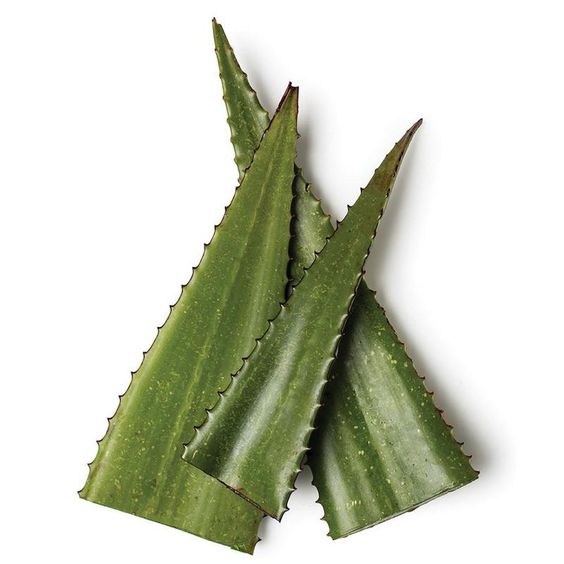
Credit: A'ila Pure/Pinterest
Known for its cooling properties, aloe vera is a common pain remedy for treating sunburns, wounds and small cuts. The aloe vera we use topically is the gel-like substance housed inside of the aloe vera plant. It offers anti-microbial, collagen-boosting and inflammation-reducing properties to soothe the skin and promote healing. Aloe vera helps manage chronic conditions, such as eczema and psoriasis by alleviating inflammation, itchiness, nourishing dry patches and sealing the skin’s moisture barrier.
The gel promotes oil regulation, making it a powerful solution to reduce clogged pores and inflammation to treat acne and prevent future breakouts. Its microbial-fighting properties eliminate dirt, bacteria and germs that can inflame the skin. Aloe vera fights infections making it a natural alternative to Neosporin for minor cuts or wounds and cold sores. The gel-like substance soothes any pain and burning, fighting the bacteria and viral infections and promoting collagen production that is essential for wound healing.
Apply aloe vera two to three times daily for the best results.
Basil Leaf
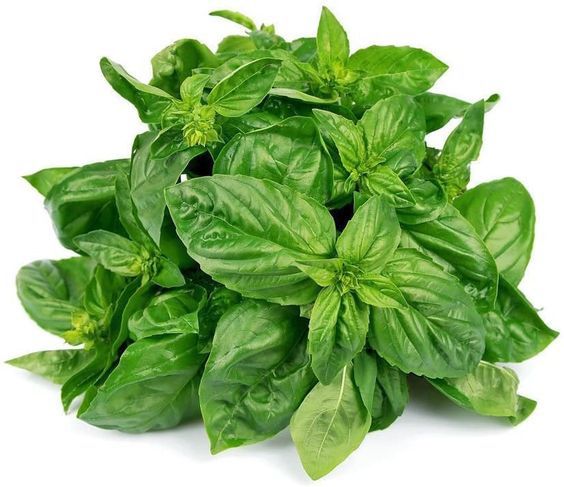
Credit: Etsy/ Pinterest
This culinary staple promotes full-body healing, from your stomach to your skin. Basil is rich in anti-inflammatory and anti-bacterial benefits, making it the ultimate natural remedy to fight and prevent acne. These properties cleanse your pores and reduce build-up from oil, dead skin cells and germs. Basil leaves’ soothing qualities help to calm any skin redness or discomfort resulting from a breakout.
The plant’s antioxidant-rich profile promotes collagen production to increase cellular turnover (to fight against clogged pores) and combat signs of aging, such as wrinkles and fine lines. Basil has anti-fungal properties to treat and prevent skin infections, from athlete’s foot to ringworm and more.
To use, blend basil leaves into a paste and mix with lemon juice to apply to the skin. Add honey to the mixture for a more hydrating treatment. Rinse off the paste with water once it dries (or after 15-20 minutes). You can also boil the basil leaves and add lemon juice. After they cool, apply the mixture as a basil toner solution. Apply it with a cotton ball and rinse off with water after 20 minutes.
Calendula Oil
Derived from the marigold flower, calendula oil is known for its anti-microbial, hydrating and anti-inflammatory properties that aid wound healing and skin restoration. The botanical extract is high in high flavonoids and carotenoids, two antioxidant compounds that give the marigold flowers their vibrant yellow hue. These antioxidants reduce skin swelling, redness and promote collagen production to build resilience, smooth skin cells. Along with its anti-inflammatory benefits, its bacteria-fighting compounds reduce acne and prevent skin infections – whether it’s from a chronic skin condition (like eczema) or during the wound healing process.
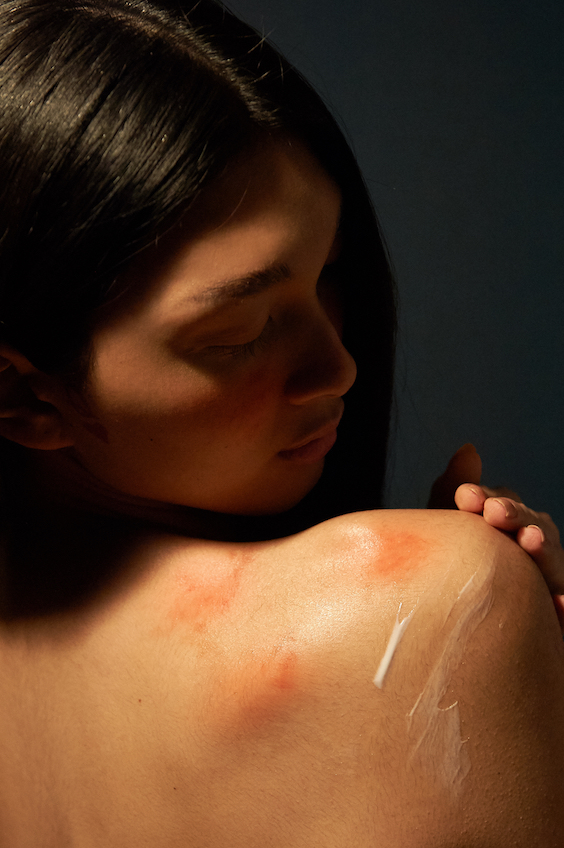
Calendula oil is also rich in calendic acid that hydrates the skin and protects its moisture barrier. It is one of the main ingredients in Zensa Healing Cream thanks to its hydrating and skin-repairing benefits, which are essential during the after-care stages during the tattoos, microblading, microneedling and bikini waxes healing processes.
Read more about the benefits and why to use calendula oil HERE.
Chamomile Flower
Like the relaxing tea made from its leaves, chamomile has a calming effect on your complexion. It contains various antioxidant and antimicrobial compounds that reduce redness, inflammation and infection to promote wound healing, fight breakouts and soothe sensitive skin. In a 2010 study, researchers found that German chamomile oil lowered allergy markers when applied topically. The findings of this animal study showed that chamomile could be an effective eczema treatment.
Chamomile’s antioxidant profile boosts collagen, helps brighten skin and reduces oxidative stress to prevent signs of aging – from hyperpigmentation to wrinkles and fine lines.
There are two main types of chamomile: German and Roman chamomile, which both contain a combination of chamazulene, matricin and bisabolol that give the flower its powerful soothing and healing benefits. However, German chamomile is known as the more effective option due to its higher concentration of chamazulene and bisabolol. This version is the one commonly used in skincare products.
Licorice Root
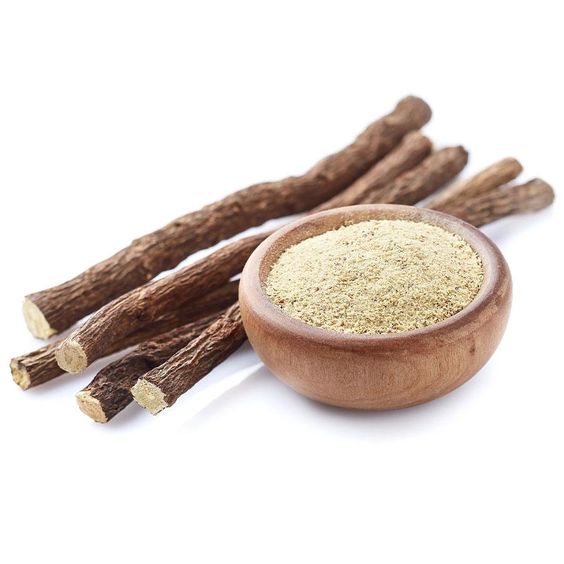
Credit: NY Spice Shop/Pinterest
Widely recognized for its medicinal benefits, licorice root contains a powerful antioxidant called glycyrrhizin that reduces inflammatory skin redness, itching and irritation. It also has anti-bacterial and anti-viral properties that make it an effective treatment for acne, wound healing and chronic skin conditions like eczema. In a 2003 study, researchers found that licorice root-containing cream improved eczema over a two-week period among the 60 adults who participated in the trial.
Licorice root contains licochalcone A, an anti-inflammatory antioxidant that reduces skin irritation and regulates your skin’s oil production. This plant extract is also known for its anti-aging properties, such as protecting against sun damage, wrinkles and brightening skin.
Stinging Nettle
Stinging nettle (also known as common nettle) extract is a skin-nutrient powerhouse with several antioxidants, vitamins, minerals and omega 3 and 6 fatty acids to nourish and heal your complexion. It contains vitamins B2, C, D, K and minerals, such as calcium, potassium, magnesium, copper, iron manganese and more. Nettle contains anti-inflammatory properties to accelerate the burn and wound-healing processes and reduce skin irritation from allergic reactions and inflammatory conditions, including psoriasis and eczema.
The linoleic and oleic acids strengthen the skin barrier to keep the cells hydrated, prevent irritants from infecting the skin and balance out the skin’s oil production without clogging your pores. Stinging nettle is also known for its mild astringent qualities that fight acne and prevent breakouts. It can also be used to combat hormonal acne, dark spot and acne scarring.
Most stinging nettle-containing products come in a cream or serum formula. For a budget-friendly solution, you can use nettle tea with a cotton pad as a toner.
St. John’s Wort

This ancient medicinal herb improves both your mood and complexion. St. John wort’s anti-inflammatory properties accelerate the scar, bruise, burn and wound-healing processes when applied topically. It is also rich in antioxidants that promote cellular turnover to keep your skin hydrated and smooth. This boost in collagen production encourages reduced signs of aging, including fine lines and wrinkles.
The plant has anti-viral and anti-bacterial qualities to help combat skin irritation and infection. These attributes make it effective against acne. One 2003 study found that St. John’s wort is effective for the treatment of atopic dermatitis (eczema) when a Hypericum (another name for St. John’s worts) cream is applied topically to the area.
St. John’s wort is available as an essential oil and its extract is infused in several skincare creams. The herb can also be consumed as a tea or tablet and has long been considered an alternative medicine treatment for depression, anxiety, chronic stress and ADHD. Adding a cup of this tea to your routine could relax your mind and result in calmer skin, too.
Turmeric
With its distinctive yellow hue, turmeric is full of antioxidants and anti-inflammatory properties. It accelerates the wound-healing process, fights breakouts, reduces acne scarring and treats skin infections and irritation. Studies have found turmeric reduces symptoms of psoriasis, eczema and alopecia. Early research suggests that it can also help treat scabies. The herb’s nutrient-rich profile boosts collagen production for a healthy glow and smoother skin.
Don’t be alarmed if turmeric leaves a slight yellow overcast on your face after use. Make sure to patch test the herb before applying it all over the area.

Witch Hazel
Despite its spooky name, witch hazel is known for its skin-soothing properties. The plant’s leaves and bark are commonly made into a tea and topical ointments. Witch hazel is recommended for those with sensitive skin to reduce symptoms of inflammation, irritation, redness and burning. A 2002 study found that using a lotion that contains 10% witch hazel significantly helped with skin inflammation and treating erythema (reddening of the skin from an injury or irritation).
Witch hazel acts as an astringent, meaning it helps to unclog and shrink pores. It has anti-inflammatory and anti-bacterial benefits to reduce skin inflammation, irritation and bacteria to reduce acne and prevent future breakouts.
The plant contains tannins, a compound full of antioxidants that help protect the skin barrier from sun damage to protect you from free radicals that onset cancer and signs of aging.
Yarrow
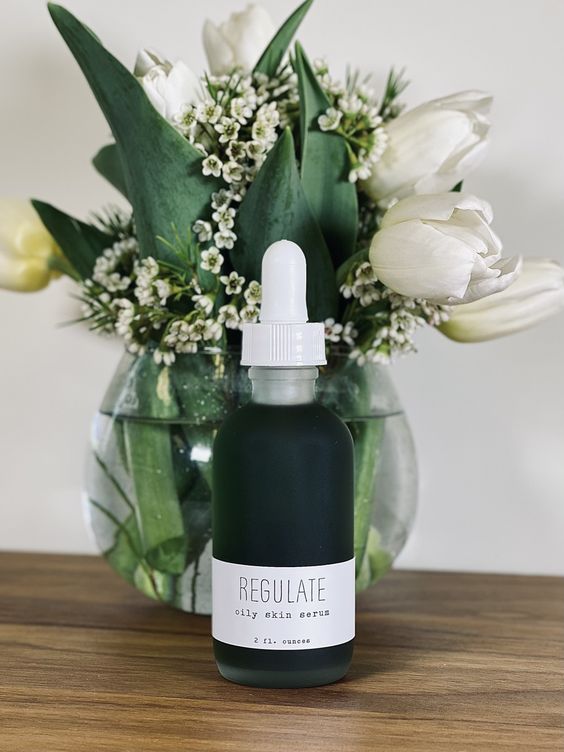
Credit: handmade. la connner/Pinterest
Packed with healing benefits, yarrow is a plant popular in herbal medicine that has anti-inflammatory, anti-microbial and skin-soothing properties. It is a natural astringent that contains flavonoids and salicylic acid to help tighten pores, combat bacteria that cause acne and balances the skin’s oil production for a calmer complexion. The plant’s antioxidants encourage collagen production that soothes any inflammation and can help reduce the appearance of acne scars and wrinkles, too.
Yarrow is known for its wound-healing qualities and ability to stop bleeding. It can be used on minor cuts and rashes to reduce inflammation, clean the area and help prevent infection.
You can use a yarrow-infused skin oil, serum or steep a cup of yarrow tea after letting it cool. Use your yarrow product of choice as a toner after cleansing your face.
